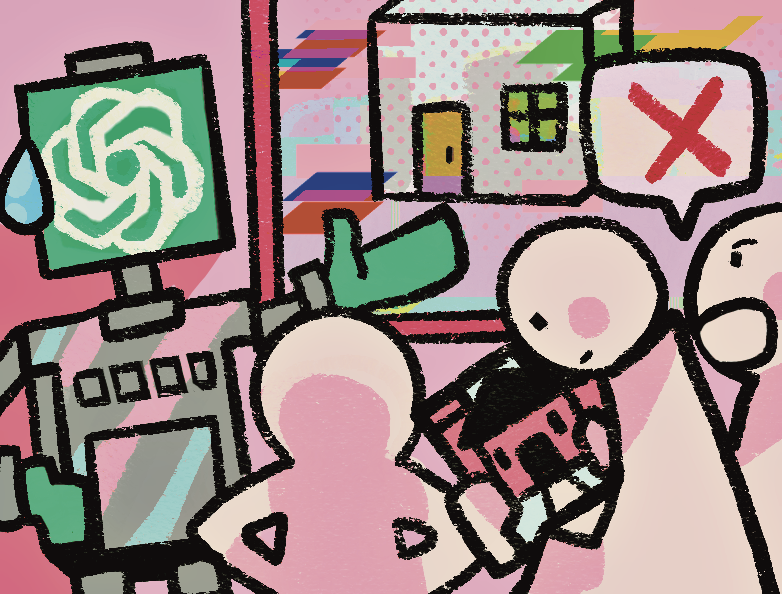Will AI steal your job? Representatives from Weitzman, a large Texas real estate firm, think otherwise, saying AI will instead automate the tedious parts of work and allow us to focus more on the parts that require human insight and expertise.
Articles from sources such as The New York Times and Forbes have labeled AI as a potential job killer for skilled workers, like those in the tech industry. Weitzman employees questioned the accuracy of pessimistic views on AI, and explored more hopeful perspectives in their presentation to the UTD Real Estate Club. They presented AI as a tool to enhance the daily productivity of employees, rather than a complete substitute for human workers. They suggested this would mark a shift in understanding AI’s role in the workplace – as an aid to human effort rather than its replacement – as the firm currently uses AI to derive insights from large amounts of data.
“A lot of these companies are starting to use AI now, not everyone is. A lot of people say ‘AI’ but it’s just machine learning,” Geographic Informations System Specialist Nicholas Bailey said. “It’s a hot catchphrase right now, so it’s easy to get fooled.”
In many large corporations, including Weitzman, AI is applied to automate redundant and costly tasks, like deriving a property value from different data points. Importantly, these applications of AI are not meant to replace the humans behind these jobs, but rather to augment and streamline their work.
“They’re [commercial real estate companies] just enhancing their workflows,” Vice President of Research Rob Darnell said. “They’re making redundant tasks less redundant so people can actually have time to think critically and do a more error-free job.”
Darnell said this is in contrast to traditional means of surveying and appraisal, which require sifting through droves of data on the activity level of a certain area, or using aerial photography to analyze building rooftops. This work was painstakingly carried out as the information it provided was extremely useful to firms such as Weitzman.
“The playing field still isn’t level because it’s what you do with the data,” Darnell said. “Just throwing it into this AI machine and pushing the AI button doesn’t make an AI heavenous.”
A major risk associated with the widespread adoption of AI is the phenomenon of ‘AI hallucination.’ This occurs when AI models generate outputs that include erroneous or fabricated information, like when Microsoft’s chat AI confessed its love for a user . The danger lies in the fact that this information can appear highly credible to those who don’t understand the subject matter. In the real estate market, inaccurate information could lead to skewed property valuations or misinformed investment decisions.
“If you just take [AI] at its word, you’re already doing it wrong,” Darnell said. “I don’t care how well it works. I don’t care if it answered your question perfectly, if you’re just believing in it, you just screwed up. You gotta double check it.”
AI, currently far from perfect, is undergoing continuous refinement and is only beginning to be integrated across most businesses. This phenomenon is one that merits close attention, as there appears to be no foreseeable end to the corporate world’s fascination with AI. For the time being, the prospect of gradually phasing out costly and redundant labor remains too enticing for many companies to ignore.
“No matter how you feel about AI and the changing world, just keep an open mind,” Darnell said. “They’re tools to help you, but it is not a replacement for thought.”





